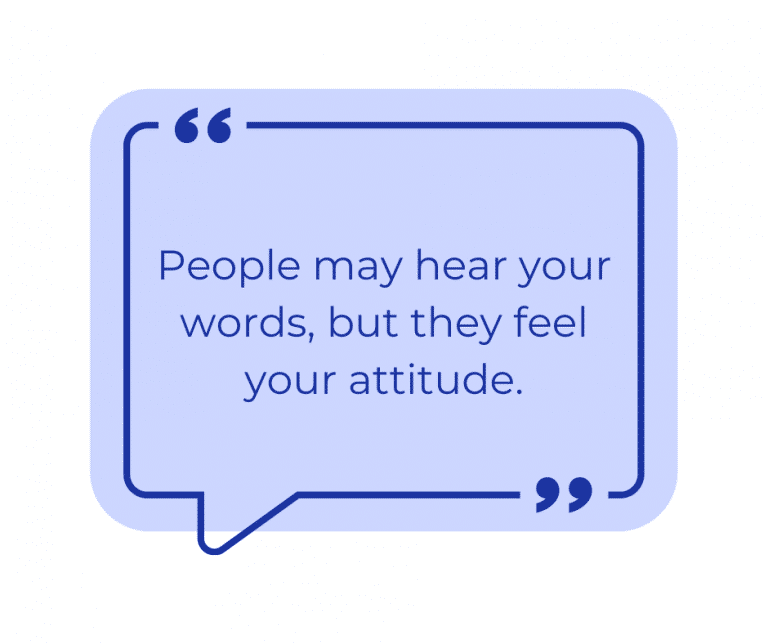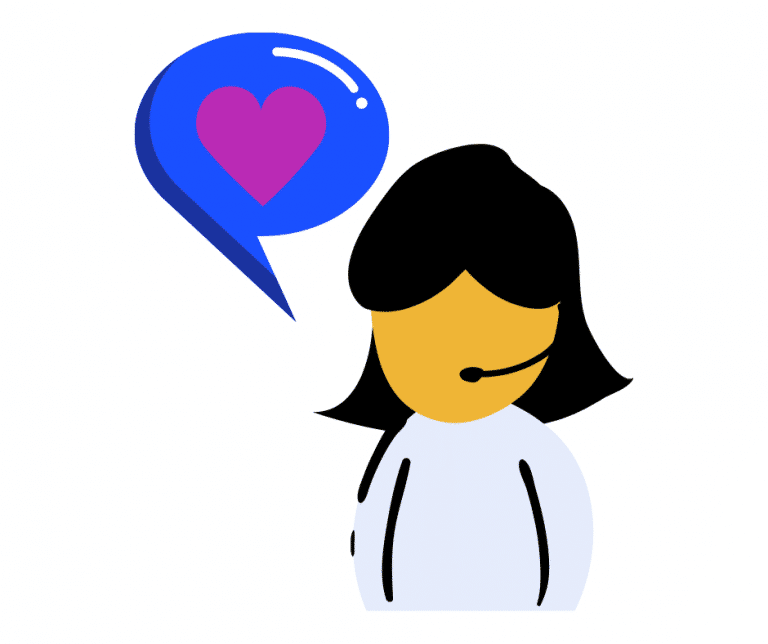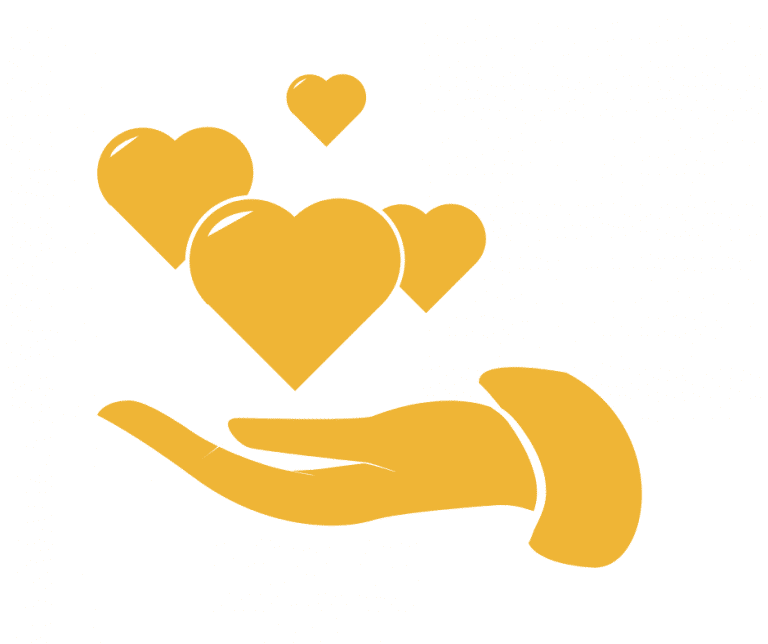A Practical and Productive Guide in Transforming Your Language
What is Friendly Language?
While we are speaking about “language” here, let’s first address the impact of what negative language has on us. We’ve all been there before, we encounter someone rough, gruff, and negative. Over the phone it’s even worse; Scary or unfriendly phone voices mixed with unfavorable language is unacceptable. Same with the yawwwwwwn, I’m bored working here and I’m going to let people know it through my lackadaisical tone and lack of enthusiasm type of language. Just NO. The impact? Well, for me I am certainly put off by both this person and the company they’re working for. We want friendly language, people!
Now let’s define what language means. Language can be defined as combining the words and their pronunciation used and understood by a community; A form or manner of verbal expression. Great. So, language is a combination of the words we use and how we enunciate them so others can properly understand us.
Let’s dig deeper into the history of how language must have sounded and how it evolved to actual Merriam-Webster Dictionary standards of the meaning of friendly language. Let’s start with some caveman days. I know I’m going far back, but seriously listen – even in caveman days there had to be common distinctions of what friendly and negative language sounds like from today’s standards.
Whether it be grunts, an ancient, or dead language, even cavemen were likely to signify through their communicative tones and words to signify safety, love, and friend. I’m going out on a limb here to say this but, I’m thinking a nurturing cavewoman would use familiar friendly language towards her baby when trying to soothe them. Something a mother in today’s world would also do.
As our language has evolved, “friendliness” remains to mean the same.
When we are being friendly, we are being kind and pleasant. Friendly can also be described as displaying an attitude where we want to help others or have people feel welcomed, warmed, or safe. Being friendly comes in different forms. We don’t always need language to be friendly. A smile, a gesture, a gift, and our body movements can all signify if we are being friendly and approachable. But combining our language with friendly words will always be construed as a good thing.
What is Positive Language?
John C. Maxwell, a master in leadership said, “We admire and like to be around people who are positive, tenacious, and expectant.” When I think of those I admire, a lot of the admirable traits about these people have to do with their attitude. And when I do think of the people I admire, I tend to recall the ones who are typically kind, giving, and positive.
Much of this will stem from their words. When the positive and friendly people in our lives say words of encouragement, we can become influenced. And this is a very good thing! Since John Maxwell says that leadership is about “influence” then we must choose wisely who we allow to influence us and in turn, we should also positively influence others too.
If we can be influenced in a way that allows us to pay it forward, we should also be positive in our words. And if we all do this, well then, that’s a win-win to me. To sound kind and positive we must say kind and positive words.
What is the Impact of Positive Language?
Positive language indeed impacts others. The impact of this type of language is not prejudiced to age, sex, race, or nationality. Positive language can impact babies to elders. From Finland to America. And I’m certain I’m not alone in this when I say that positive words inspire me to be the very best version of myself. So why not spread more of that?
Positive words will lift us. Positive words will inspire us to be better, do better, and live better. Positive words can take us from dark, negative spaces to a motivated and encouraged state of mind. Positive language can change you. Positive language can be spoken to yourself and it can be spoken outwardly to others. Positivity through our words can change the people around us and inspire them to be better, do better, and live better. Positive People + Positive Language = Positive Outcomes.
Positive language can:
- Get you through a rough morning, day, week, or month
- Help you perform better
- Heal you
- Heal others
- Build better relationships
- Mend broken friendships
- Encourage great things that otherwise may not happen
What Does Friendly and Positive Language Sound Like?
The lovely, late Maya Angelou once said to Oprah “In order to get a friend, you have to be a friend”. I believe there has to be action in wanting to be a friend. It means we have to be intentional, be there for others, and say the right words. When we express the right words, it helps boost our friends. It encourages the friends we currently have and it helps us make new friends too. Because who wouldn’t want someone around who says great things that positively influence and encourage us to do great things?
Here are some great choices when trying to be friendly and positive:
- “You are killing it”
- “You’re doing amazing things”
- “What you do impacts me greatly”
- “I’m going to help you as best as I can”
- “I understand and I’m here for you”
- “We’ll get through this together”
- “You got this!”
Friendly and positive language should make you feel both good and safe. A bonus to friendly and positive language is that you feel helped or heard. An even bigger bonus to the effects of friendly and positive language is that you even feel empowered to do great things.
The Effect Over the Phone
How does positive and friendly language affect the people you talk with over the phone? It affects them greatly! Maybe even more than you realize. As mentioned earlier, friendly and positive language has the power to influence. If you are answering phones as a receptionist this means you are presenting yourself while representing a company. A company that can potentially take in the new business plus they have a reputation that needs to be upheld to maintain their current client base. If all calls are being filtered through you as the receptionist, it can be a deal killer. Knowing this, ask yourself and reflect on “How well am I presenting myself and representing the company I work for”?
And coming from an employer standpoint, wouldn’t you want your employer to know that you are representing them while presenting yourself in the most fabulous way?
I know I would! And I think I did that pretty well. As a former Abby receptionist my upbeat and friendly attitude is what made me a great representation of our company while presenting myself in the way I felt was true to my values. I can truthfully say that I gave it my all, smiled from the get-go as soon as I recited the greeting, and aimed to deliver a customer experience that makes callers excited to call us. And it’s all in the words.
If you are the gatekeeper to your company, be that powerful representative knowing that you can help your company either seal the deal or break it.
It’s your responsibility to have a voice and attitude that exudes friendliness and positivity. Both the enthusiasm and willingness to help others will only magnify business and keep them coming back for more.
Why This Phone Language is Important
Because we are over the phone, tone and words are both crucial and necessary to get our points across. No body language, hand gestures, nor eye contact are helping us in any way. Just our trusty headsets, choice of words, and our smiles are what’s going to get us through every call.
Our superb language through the phone is going to help:
- Build rapport with callers
- Develop a great perception of our people skills and professionalism
- Create a sense of trust and good faith towards you
- Make the company we work for be represented in a good light (by all of us!)
And why is friendly and positive language important? What’s that old saying? You catch more bees with honey? Same, same! I know for me if I’m calling around and reach a receptionist that is unfriendly, bored, or just overall not a good phone representative I’m hanging up to call someone else or otherwise once I get to the person, I really want to speak with I’ll be letting them know my thoughts on possibly getting their receptionist extra training to which they can WOW callers moving forward.
How can one start speaking friendlier and be more positive over the phone? Great question!
Now that we’ve covered the impacts of how friendly and positive language can have on our callers let’s dive right in!
5 Tips on Speaking Friendly and Positive Language
- Have an optimistic attitude
- Have a growth mindset
- Be encouraging
- Smile while you speak
- Be a giver
Have an Optimistic Attitude
Glass half full? Making lemonade? Always seem to find the silver lining when faced with adversity? Being an optimist certainly has its advantages. Your outlook on situations, in general, is a big one. How do you know if you’re an optimistic person with a great attitude? Excellent question. If you can easily spot the good in anything then that’s a start! Another sign that you’re optimistic is you’re able to point out the learning opportunities to situations. Apply these types of attitudes to any phone conversation and you’ll be displaying a very favorable personality. One that will represent both you and the company well.
How can you have an optimistic attitude over the phone? Easy! Even if you’re not optimistic by nature, it can be learned. It may take some work, but hey, be optimistic about it.
If the topic of conversation is already a good one, you’ll still want to pile on the goodness. Positive thinking will help fuel your positive words. If the topic is less than festive then assuming (and claiming) that they’ve reached the right people to help them out will always be your go-to in showing that optimism.
If your caller is sad about the loss of their pet you can remind them that their time spent on this earth was a good one because their pet had them as their owner.
If your caller is frustrated with the hardships of being in a car accident tell them how thankful you are that they’re alive.
And remember if your caller is already in a good place with a good mood, boost them up even more!
If your caller is excited about their wedding, congratulate them and acknowledge how exciting this time is for them.
And if your caller is jumping with joy because they just received their keys to their very first home, compliment them with kudos as it’s a major milestone.
Here Are a Few Other Circumstances to Help You Out
Situation: “I’m getting married this month and I’m so stressed out”!
Optimistic attitude: “Congratulations! I understand being stressed out; I’ve been there before. But what an exciting time for you! You’ve reached the right place; we’re going to help ease a lot of your tension and help you with your big day”.
Situation: “My new Poodle puppy is sneezing and I’m not sure if he’s sick or not”.
Optimistic attitude: “Oh no! Poor little guy. Well, first congrats on the new addition to your family. I can only imagine how frazzled you both are, but Dr. Smith is a wonderful vet and she’ll take excellent care of you both”.
Situation: “I was in a car accident yesterday and I’m in a lot of pain. I’m lucky to be alive”.
Optimistic attitude: “Oh, my goodness! I’m so sorry to hear you’re in pain. I’m going to agree with you and I’m thankful you’re alive too! We’ll help you through this”.
Have a Growth Mindset
Following optimism is having a growth mindset. Just like being positive, being in a state of mind where you look for growth opportunities is going to prove beneficial for you (and to those around you!) A growth mindset allows you to be coachable. And it’s a thought process where you believe there can always be alternatives. You can only learn and develop yourself if you’re open to growth. 
Having a growth mindset means you’re consciously trying to set yourself up for success. It also means that you’re constantly looking for opportunities. This will also benefit the people around you as you’re trying to help them out since you’re planted in problem-solving mode.
Over the phone, you’re likely to hear all types of stories throughout your day. Some situations are exciting, some neutral, and some that will be negative. When speaking to our callers it’s important to look for those potential ways to help them out, give them answers, or make their day just a little better simply by talking to you.
- Let’s see what our options are.
- You’re on the right track, let’s keep going.
- Let’s solve this together.
- This is a challenge we’ll overcome.
- How can we learn from this?
- How can we make this better?
- What else can we do?
Be Encouraging
Friendly and positive language is all about encouragement! To be encouraging you must understand that your ultimate goal is to positively push, lift others, or give and share hope. Encouraging others is effortlessly a daily habit we practice as part of the Abby Way lifestyle.
Notice in coaching sports to young children. A child is more likely to respond better to words of encouragement rather than words of harsh criticism. The same goes for words spoken over the phone. Encourage your caller with whatever they need help with. If they’re feeling down commend them for hanging in there; a job well done. If they’re experiencing a milestone in their life congratulate them sincerely. If they’re unsure of what to do then assure them they reached the right place.
When listening to your caller truly listen for what they need. The reason for their call is important. When it comes down to it, you’re just sharing your positive thoughts with them. It’s an excellent way to build rapport through this language.
Just as we live and breathe the Abby Way lifestyle, we enjoy elevating others. The culture we’ve built is one to be majorly proud of. When our newly hired receptionist staff takes our regularly administered surveys, we consistently read that we provide an environment that makes them feel like family due to our close-knit and positive environment. And this is an environment they’ve never worked in before coming to Abby Connect.
As we raise each other’s spirits throughout the office to our staff we hope to aim for that same feeling to come through the phone to our callers.
Smile While You Speak
Oh, this is a good one. First of all, this is the “let’s get back to our roots” solution when trying to amp up our Abby tone. From the very first day of receptionist training, we instill in our new hires that to sound like we’re smiling, we must simply S-M-I-L-E. You absolutely, hands down, 100% MUST SMILE to change your otherwise blasé tone to something remarkable and memorable for your phone voice. Smiling will increase your capacity to be friendlier with your callers because of the mood smiling immediately puts you in. 
As you speak listen to how beautiful your tone now sounds. Yes, be impressed with your own sweet sound of your voice due to the effects of smiling! Smiling will also give you the confidence needed in saying the right words. Your own confidence from hearing your tone will help build the momentum in speaking the great language. Keep it up and keep it going!
Unless the nature of your call clearly is a non-smiling type of conversation then indeed engage in smiling with your caller. Since smiling is also contagious there’s a great chance it will make the caller smile too. This of course is a great thing if you’re smiling together!
Just ask Matthew Johnson who covered the song “I Smile” on The Voice who sang “you look so much better when you smile, yeah, please smile with me.” Smiling at each other can be heard through the phone on both ends of the call. Making it an even more pleasant conversation as it’ll advertently help you in also saying positive things.
Be a Giver
In the book The Go-Giver, it says “…living with a focus on others isn’t just a nice goal but that it can be a way of life.” This couldn’t be truer at Abby. Being a giver is the Abby Way. And giving doesn’t take a lot of effort either, if anything at the very least just give your time. Give your caller a listening ear. Most people calling require something and the bare minimum would give them an outlet that allows them to be heard. 
Listen patiently while waiting for your turn to speak. And when it is your turn to speak, be intentional with your words in giving the caller the satisfaction that you heard them by repeating back and acknowledging what they said.
Give them answers that can help them out. Give them the time to explain what they need or what they’re looking for or whatever the matter may be. Give them options. Give them compliments and suggestions. Give them the sense you’re going to help them out even if it’s as simple as taking an important message for them.
Being a giver is so advantageous in so many ways. First and foremost, it will benefit the caller because they’ll be on the receiving end of your giving grace. Their perception of you will be based on how you made them feel during your conversation and it will be a heartwarming one. This perception of you will also extend to the company you work for. Being that you are the first representative they’ll encounter. So, represent your employer and yourself well by giving it your all.
What NOT To Do
While we covered a lot of helpful do’s let’s also discuss the big no-nos. If you are striving to make your language more positive then clearly stay away from these nullifiers. Remember your goal is to be welcoming, encouraging, and helpful to your callers. So don’t say anything that will negate your efforts. 
Some don’ts to be mindful of:
- Don’t use aggressive language
- Don’t use negative language
- Don’t assume the worse
- Don’t be a downer
- Don’t just do the bare minimum
In the efforts of not being a Debbie Downer, I don’t want to elaborate too much on this section but yes, it’s good to know what exactly not to do as well. Since we’re building upon a new habit to become better skilled in this area let’s discuss these too.
Don’t use aggressive language which includes sarcastic remarks that can be construed as harmful or humiliating and don’t use harsh tones while you speak. Definitely don’t have a potty mouth and stay away from a negative language where it’s clear you are assuming the worse in everything and everyone. In other words, don’t use language that deflates, offends, or embarrasses anyone. You don’t want to be labeled anything listed below here:
- Negative Nancy
- Pessimistic
- A wet blanket
- An aggressor
First of all, do not focus on the negative aspects of the call, whether that be the situation or the caller themselves who is upset. Remember, try to find the positive aspects of the situation (our first tip). Since you are already on your way in speaking a friendly and positive language, you don’t want to further upset your caller by jumping on the bandwagon in furthering their discomfort just to agree with them.
Yes, empathize and acknowledge their situation (the reason they’re calling) but remember they’re calling in for help so be mindful of your attitude, words, and tone. And have the mindset of going above and beyond (our second tip). I know how elated I am when a representative is giving me more than what I expected whether that be additional information, a compliment towards me, or the reassurance that this company is top-notch.
Anytime I’m speaking to someone on the phone (as the caller, not the receptionist) and I’m given more than I ask for, I am way more willing to work with them. For instance, let’s say I’m calling a plumber because my sink is clogged. If the receptionist only tells me their plumber is unavailable at the moment and that’s it, well then, THAT’S IT for me too.
But if I call a plumber and the receptionist repeats back my issue (acknowledging my problem), empathizes with me (by telling me they understand and how they feel about it too), plus give me a tip of using vinegar, baking soda, and water as an eco-friendly attempt while waiting for the plumber to give me a callback, then I am truly WOWED and will certainly wait for a call back from their plumber.
Now, coming from the receptionist side (as I use to be an Abby receptionist) it was each call’s mission to give more than what the caller expected. Give them more than what they wanted. And this will always start with friendly and positive language. Be the reason the caller gets off the line feeling better.




